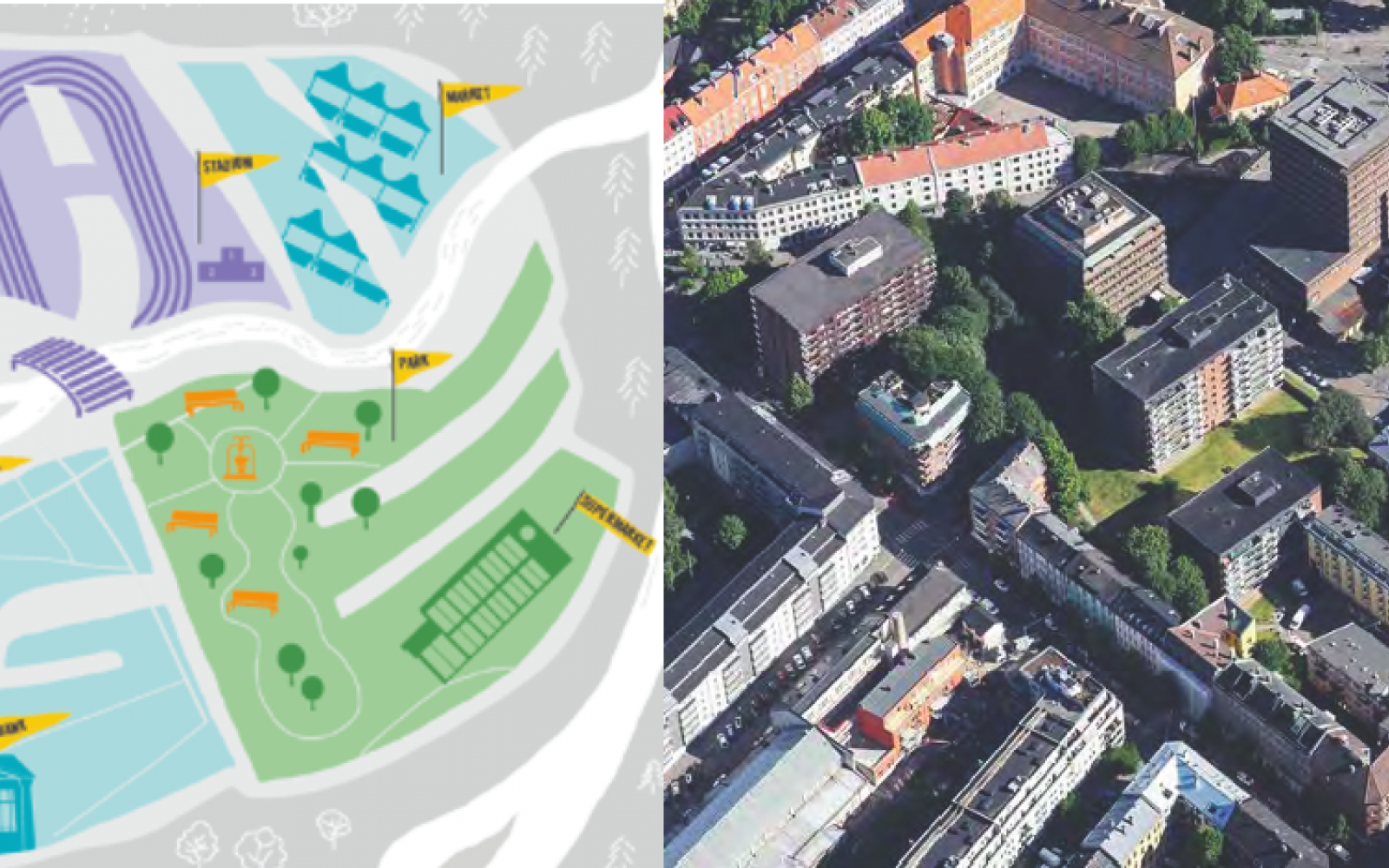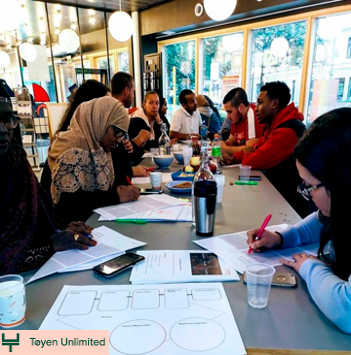Housing and entrepreneurship at the heart of Changemaker ecosystems

Multi-stakeholder initiatives can surely come together to ensure there are a multitude of opportunities for residents to be involved in entrepreneurial solutions for their communities. But, how? Who has tried? And, has it worked? Can we create new strategies and policies around it? This was the background for an EU Interreg project led by the Denmark Technical Institute and the subject of a recent seminar.
Thus it was that a group of passionate people - researchers, public sector employees, housing specialists, and social entrepreneurs - from Denmark, Sweden and Norway - gathered online to share insights about what can be achieved when living in disadvantaged housing areas is linked directly with entrepreneurship. Sarah Prosser, from Ashoka’s office in Oslo, was invited to share her experience from urban development projects in Oslo's Tøyen area and Ashoka’s work building ecosystems for social entrepreneurs and changemakers.
Ecosystems for changemaking
During the session, Sarah presented examples of how we need to think holistically and geographically if everyone living in disadvantaged areas is to feel that opportunities are accessible so that they can start initiatives to help them make a positive change to their lives, and those of their neighbours.

The establishment of a ‘community incubator’ (Tøyen Unlimited) in the Tøyen area of Oslo, and now replicated in other areas of Norway, is a safe space for residents to ‘try, do, or build’ their idea. The incubator can be considered as just one part of the wider ‘changemaker ecosystem’, a concept promoted by Ashoka that encompasses the effect of schools, parents, media, peers, sports clubs, libraries and housing, on young people’s lives and future aspirations.
Changemaking
Ashoka works towards building communities of leaders, young and old, who believe that an inclusive and sustainable society comes from enabling all young people to grow up with skills such as empathy, creativity, the ability to take an idea into action and a wish to contribute to the common good.
If every young person is given the skills and identity to be a ‘Changemaker for the good of all’ (Ashoka), and some choose to test if a business model can generate income (Tøyen Unlimited), and if we can work with a multi-stakeholder alliance for a collective type of impact, then meaningful lives and jobs can grow from the most desolate of housing estates.
What new types of collaboration are being initiated in these kinds of ecosystems?
An exciting and reassuring theme at the Nordic seminar was noting an increase in innovative and complementary partnerships. For instance, the Joint Social Housing Secretariat in Aarhus, Denmark, has partnered with The Danish Foundation for Entrepreneurship, a public/cross-sector funded knowledge center for entrepreneurship education at all levels. Together these two organisations have started Ung Iværksætere (young entrepreneurs). The Joint Social Housing Secretariat acts as the coordinator for cooperation between the residents, the housing schemes and the schools (primary and lower secondary levels), and the Foundation for Entrepreneurship provides teaching materials and capacity building for teachers and has overall programme ownership. This new kind of partnership means that theoretical school-based lessons can be extended to entrepreneurship rooted in challenges right where the pupils and their families live.

Can housing organizations lead the social entrepreneurial way?
KAB is one of the largest actors in the social housing sector in Denmark. They have recently launched their very own think tank for the social economy and social responsibility. The think-tank’s founding members are experts from legal, inclusive employment and social entrepreneurship backgrounds, in addition to KAB representatives themselves.
This knowledge center is embedded in social housing and supports social enterprise's expertise for realizing the ideas in practice in the form of a café, a sewing and repair firm, and a cleaning company. Plants and mushrooms will follow.
In short, despite the bold headlines and harsh media attention given to violence and unemployment in the social housing estate areas of Malmø, Tøyen and Høje-Taastrup, the positive and energizing stories of what can be achieved through ecosystems rigged by entrepreneurship and changemaking, can only leave one hopeful for an increase in investment in this way of acting and thinking. It makes one wonder, again, why these kinds of collaborative partnerships are not already prioritized by governments, donors and housing organizations alike to a much greater extend.

No degree of financial investment in digital, service and commercial innovation can replace investment in social innovations that are rooted in real people. Until this is addressed, Ashoka and all the seminar participants will continue to support, document and tell stories so that one day the strategies, policies and mindsets will catch up and invest in the places and people that need it.